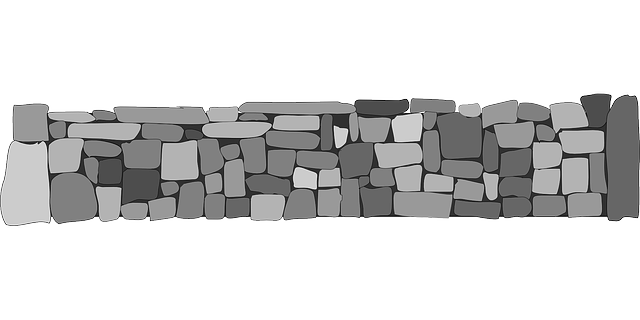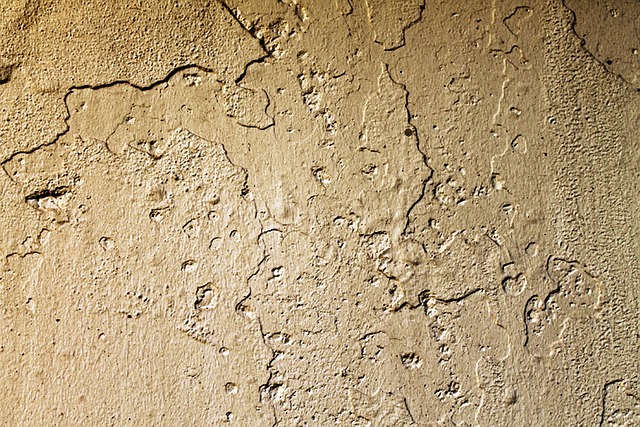Foundation leveling is crucial for addressing uneven or settled foundations, ensuring building stability and structural integrity. Timely concrete repair services fix cracks, weaknesses, and deteriorations caused by environmental factors, moisture, or age, preventing future damage and costly repairs. Signs of foundation issues include uneven floors, walls, cracks wider than 1/4 inch, stuck doors & windows, and misaligned openings. Modern techniques like laser grading and polymeric injectors offer efficient, effective Concrete Repair solutions. Choosing a reputable Concrete Repair company with specialized expertise is key for durable results. Regular maintenance checks and proactive prevention extend foundation lifespan by catching minor issues early. Advanced concrete repair successfully corrects structural problems in residential & commercial buildings, ensuring stability for years to come.
Foundation releveling is a critical service that addresses structural instability caused by settling concrete. When left unattended, sagging floors, uneven walls, and cracks can signal a larger problem. This article delves into the world of foundation releveling, exploring its necessity, impact on structure stability, identifying signs, modern techniques, cost considerations, debunking misconceptions, maintenance tips, and real-life success stories. Understanding concrete repair methods is key to ensuring your home’s long-term stability.
Understanding Foundation Releveling: When is it Necessary?

Foundation leveling, or releveling, is a critical service in the realm of concrete repair. It involves adjusting and realigning an uneven foundation to ensure structural integrity and stability for the entire building. Over time, foundations can settle or shift due to various factors such as soil conditions, water damage, or poor construction practices. These changes may result in noticeable cracks, gaps, or unevenness on the floor surface above.
When these issues are left unaddressed, they can lead to more severe structural problems, including uneven flooring, door and window misalignment, and even potential safety hazards. Foundation releveling is particularly necessary when the settlement is significant enough to affect the daily use of a space or when there’s evidence of ongoing foundation movement. It’s a proactive measure that not only restores the structure’s stability but also prevents costly repairs down the line.
The Impact of Concrete Repair on Structure Stability

The stability and integrity of a building’s foundation are paramount for ensuring the safety and longevity of the entire structure. Concrete repair plays a pivotal role in upholding these crucial aspects, as concrete is a primary material used in foundation construction. Over time, various factors such as environmental conditions, ground movement, and age can introduce cracks, weaknesses, or deteriorations into concrete foundations. These issues not only compromise structural stability but also create entry points for moisture, pests, and other elements that further weaken the foundation.
Timely and effective concrete repair services are essential to mitigating these challenges. By addressing damaged areas, re-establishing the integrity of the foundation, and preventing further deterioration, professional concrete repair methods significantly enhance the overall stability of a building. This, in turn, safeguards the structure against costly repairs or even catastrophic failures in the future, making it a wise investment for property owners.
Identifying Signs Your Foundation Needs Releveling

If your home or building’s foundation is showing signs of instability, it might be time to consider releveling services. One of the most noticeable indicators is uneven floors or walls. Cracks in foundations, especially those that appear wider than a quarter inch, are another red flag. Doors and windows that stick or do not close properly can also suggest issues with your foundation. Over time, soil settlement or changes in moisture levels can cause concrete to shift, leading to structural problems.
Foundation releveling is often necessary when the concrete has settled unevenly, resulting in significant gaps or gaps filled with cracks. If you notice doors and windows becoming misaligned or if there’s a distinct slope to your floor, these could be signs of foundation damage that requires immediate attention from professional concrete repair services.
Modern Techniques for Effective Foundation Releveling

In today’s digital era, foundation leveling has evolved beyond traditional methods. Modern techniques leverage advanced technology and innovative materials to ensure precise and effective concrete repair. One such method is laser grading, which utilizes highly accurate lasers to measure and adjust the terrain, providing a level surface for building foundations. This technology eliminates human error and increases project efficiency.
Another cutting-edge approach involves the use of polymeric injectors that fill cracks and gaps with specialized compounds. These compounds not only stabilize the foundation but also expand to fill voids, preventing further damage. This method is particularly effective in addressing structural issues without extensive excavation or disruption to surrounding areas. By combining these modern techniques, concrete repair professionals can deliver superior results while minimizing project timelines and costs.
Choosing the Right Foundation Repair Company

Choosing the right foundation repair company is a crucial step in ensuring effective and long-lasting concrete repair solutions. When facing foundation issues, it’s essential to research and select professionals with proven expertise and a strong track record. Look for companies that specialize in foundation leveling and have extensive knowledge of various concrete repair techniques.
Reputation and experience matter; opt for established firms with positive customer reviews and a history of successful projects. Inquire about their process, materials used, and warranties offered. Reputable companies will provide detailed estimates, ensuring transparency and giving you peace of mind. Remember, selecting the right repair partner is key to achieving robust and stable foundations for your property.
Cost Considerations: Budgeting for Foundation Releveling Services

Foundation leveling services are a wise investment for any homeowner facing uneven or sinking foundations. When considering concrete repair options, budgeting is a key factor. The cost of foundation releveling can vary greatly depending on several factors, such as the severity of the issue, the size and shape of your property, and local labor rates.
It’s essential to obtain quotes from reputable contractors who specialize in these services. They will assess your unique situation and provide an accurate estimate that includes all necessary materials and labor. Remember, while cost should be a concern, prioritizing the expertise and quality of service is crucial for long-lasting results and ensuring your home’s structural integrity through effective concrete repair.
Common Misconceptions About Foundation Repairs Debunked

Many homeowners often hold misconceptions about foundation repairs, assuming they are complex and costly endeavors. One common myth is that repairing a foundation means tearing up the entire structure, which isn’t always true. Modern concrete repair techniques offer efficient, non-invasive solutions. For instance, underpinning or piecing involves adding support without visible changes to the surface.
Another misconception is that only severe damage requires attention. Even small cracks or uneven floors can indicate underlying foundation issues. Ignoring these signs may lead to more extensive and expensive repairs later. Regular maintenance checks and prompt action on noticeable problems are key to preventing major structural damages. Early intervention ensures that simple concrete repair methods can be employed, keeping your home stable and secure.
Maintenance and Prevention: Ensuring Long-Lasting Results

Regular maintenance and proactive prevention are key to ensuring the longevity of your foundation and avoiding costly concrete repair in the future. By scheduling routine inspections, homeowners and property managers can identify minor issues before they turn into major problems. This includes checking for cracks, uneven settling, and any signs of water damage, as these are common indicators of foundational instability.
Preventive measures such as proper drainage, moisture control, and addressing structural weaknesses can significantly reduce the risk of foundation problems. Regular concrete repair and maintenance not only extends the life of your foundation but also prevents further damage to your property, ensuring a stable and secure structure for years to come.
Real-Life Success Stories: Transforming Unstable Foundations

In many cases, homes and buildings with unstable foundations face significant structural issues that require expert intervention. That’s where foundation leveling services come into play, transforming what was once a source of worry into a stable, secure structure. Real-life success stories abound, showcasing the transformative power of concrete repair techniques in addressing uneven floors, cracked walls, and other signs of foundation problems.
From aging homes to commercial properties, these services have proven effective in restoring structural integrity and enhancing property values. By leveraging advanced technology and specialized expertise, professionals are able to stabilize foundations, prevent further damage, and ensure the longevity of buildings. Through meticulous planning and precise execution, concrete repair becomes not just a solution but a testament to the resilience and renewability of architectural structures.
